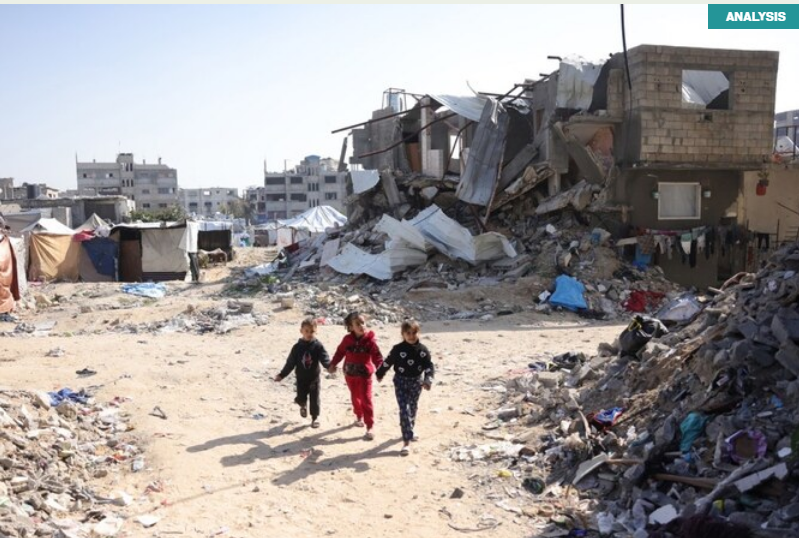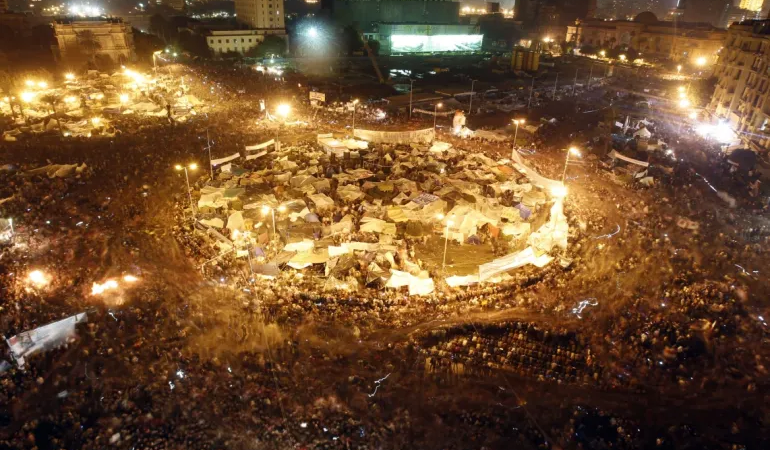What happens to vulnerable Arab nations when USAID programs are shut ?

The impact of the Trump administration’s decision to slash $60 billion in aid funding and cancel 90 percent of contracts by the US Agency for International Development is being felt by millions of the most vulnerable people in the Middle East and North Africa.
In countries like Iraq, Syria and Yemen, lifesaving aid programs to feed and provide healthcare for huge populations affected by conflict have halted. In Jordan, hundreds of development projects to boost the economy face an uncertain future and thousands of jobs may disappear.
The widespread halt in aid was confirmed just as countries across the region started to mark the holy month of Ramadan.
In an internal memo and filings in federal lawsuits, the US administration said it is eliminating more than 90 percent of USAID’s foreign aid contracts and $60 billion in overall assistance around the world. The memo said officials were “clearing significant waste stemming from decades of institutional drift.”
More changes are planned in how USAID and the State Department deliver foreign assistance, it said, “to use taxpayer dollars wisely to advance American interests.”
Many Republican lawmakers believe USAID has been wasteful and harbors a liberal agenda. President Donald Trump has also promised to dramatically reduce spending and shrink the federal government.
USAID’s supporters say the agency not only provides vital assistance around the world, but for less than one percent of the federal budget, it is also America’s greatest soft power tool.
The crisis first arose on Jan. 20 when Trump signed an executive order halting all foreign assistance for a 90-day review period because the aid industry was “not aligned with American interests.”
Within days, Elon Musk’s Department of Government Efficiency was homing in on USAID programs, and by last week termination letters had been sent to nongovernmental organizations around the world.
Nearly 5,800 of USAID’s 6,200 multi-year contracts worth $54 billion were cut. The State Department also cut $4.4 billion in foreign aid-related grants.
Much of the agency’s vast array of work, from providing food to the starving, healthcare programs and economic development initiatives, has been stopped.
Many promised waivers for lifesaving programs have reportedly failed to materialize.
More than 6,000 of USAID’s 10,000 staff have been placed on administrative leave or fired, and tens of thousands of people working around the world have also lost their jobs.
Control of USAID has been moved to the State Department, which is locked in legal battles over the cuts. The department did not respond to a request for comment.
The MENA region received $3.9 billion from USAID in 2023. The sudden removal of the agency’s support could cause further suffering and instability in the region, Yossi Mekelberg, associate fellow of the MENA Program at Chatham House, told Arab News.
“We’re talking about budgets of billions, which goes to projects between humanitarian and development,” he said. “The minute you take it away, you make people either suffer from humanitarian crises or you stop the development of these countries.
“If you want to maintain stability in the Middle East, which is important to the United States, you need economic development.”






